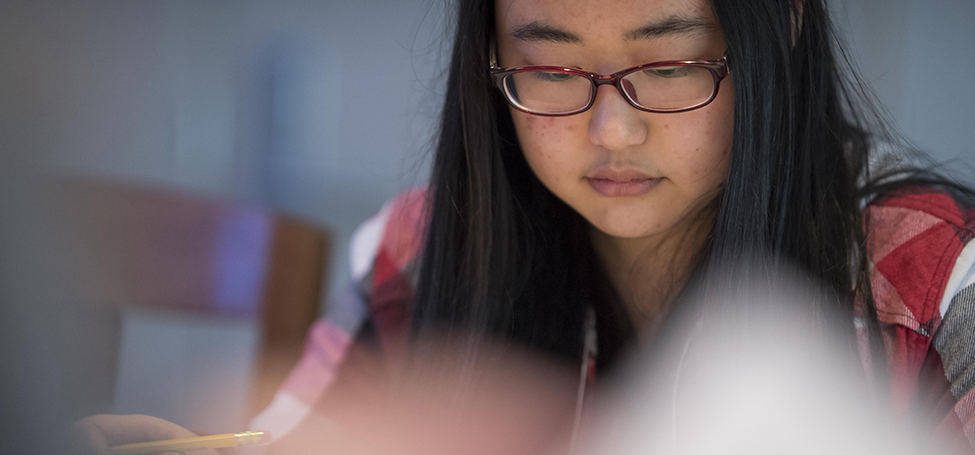
Investing in Diversity and Inclusion
In August 2018, 463 first-year students representing 46 states and 20 countries matriculated at Grinnell. They are one of our most diverse classes ever: 19 percent are international students; 15 percent are first-generation college students; and 28 percent are domestic students of color, a record-setting number at Grinnell.
How do we give these talented new students the best chance to thrive, grow, and excel? That is the kind of important question that has been central to the work of the College’s Council on Diversity and Inclusion (CDI), a working group made of faculty, staff, and students.
Last year, under the capable leadership of Lakesia Johnson, chief diversity officer, and Maure Smith-Benanti, director of intercultural affairs, the CDI drafted the Grinnell College Diversity and Inclusion Plan, a powerful and evolving document that not only highlights our ongoing work in the area of diversity and inclusion, but also serves as a blueprint for the challenging, sometimes imperfect, but increasingly essential work we need to do in the years ahead.
Our plan defines diversity as “that which makes us different from each other, including who we are, where we’re from, what we believe, who we love, our current circumstances, abilities, and lived experiences.” This plan challenges us to do the hard work those values demand. It also illuminates not only the success we have had so far but also the challenges that will require our resources, energy, and innovation in the years ahead. Simply put, a college that values diversity and inclusion must invest in diversity and inclusion.
Under the newly drafted plan, we will continue to strengthen our experience for all first-year students, developing new programs such as our first-year common read program and special First-Year Tutorial sections focused on diversity. These are specifically aimed at helping students respectfully discuss issues of difference and incorporate the values of diversity and inclusion into their academic and extracurricular lives from day one.
The new plan also underscores the indispensable role faculty members play in building a diverse and inclusive campus community. Already, the CDI has helped develop better approaches to recruiting new faculty. This includes offering implicit bias training to student representatives participating in faculty searches and the establishment of the Grinnell Equity Advocates, specially-trained peers who assist their colleagues in conducting fair and bias-free search processes.
Meanwhile, current Grinnell faculty members continue their own educations each year, participating in a variety of summer workshops that help them build more inclusive classrooms and design fully-accessible learning materials. Through our continuing partnership with the Mellon Mays Foundation, Grinnell College faculty work to diversify the academy, by participating in a mentorship program that provides resources and support to talented undergraduates from underrepresented communities who are considering graduate study in selected fields.
Some of the investments that our alumni and donors have already made in specific areas of Grinnell College have, in fact, been investments in these values of diversity and inclusion. For example, support for the Center for Careers, Life, and Service (CLS) has helped ensure that all students can access funding to attend academic conferences, tap networking opportunities, and travel to job interviews. The CLS can also help qualified students purchase the professional attire they need to be confident and successful at these events. This kind of work helps us ensure that all students thrive, not only upon entering Grinnell College, but also upon graduating from it.
We are working on building a community that ensures we can offer a transformative liberal arts education to all our students, no matter what their background. We believe we can only offer this kind of education when we have a community of differing perspectives, opinions, backgrounds, identities, and experiences working side by side in a peaceful yet challenging environment.
We also believe that this kind of education produces the open-minded, flexible, driven, courageous, and bold global citizens our world will need in the decades ahead. In short, we believe that this transformational work on our campus can eventually transform the world.
